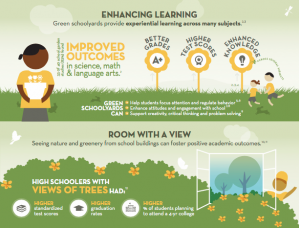 This collection of free toolkits, reports, infographics and advocacy tools is designed to help you or your organization/institution connect children, families and communities to nature. These beautiful resources lay out the many reasons that green schoolyards benefit our youth and our communities, including academic, mental health, and physical activity benefits. View Resource »
This collection of free toolkits, reports, infographics and advocacy tools is designed to help you or your organization/institution connect children, families and communities to nature. These beautiful resources lay out the many reasons that green schoolyards benefit our youth and our communities, including academic, mental health, and physical activity benefits. View Resource »
Nutritious, Delicious, Wisconsin: Connecting Nutrition Education and Local Foods
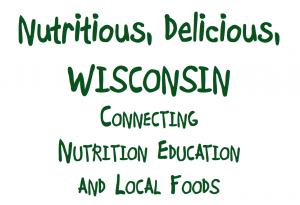 Nutritious, Delicious, Wisconsin curriculum is a thematic unit of instruction that uses local foods to teach nutrition concepts to elementary students. Nutritious, Delicious, Wisconsin focuses on Wisconsin foods with a connection to Wisconsin’s history, culture, and people. The primary goal of this curriculum is to broaden the food experiences of Wisconsin students and provide another aspect to the study of nutrition as part of the study of our great state. View Resource »
Nutritious, Delicious, Wisconsin curriculum is a thematic unit of instruction that uses local foods to teach nutrition concepts to elementary students. Nutritious, Delicious, Wisconsin focuses on Wisconsin foods with a connection to Wisconsin’s history, culture, and people. The primary goal of this curriculum is to broaden the food experiences of Wisconsin students and provide another aspect to the study of nutrition as part of the study of our great state. View Resource »
Got Veggies? ECE Edition!
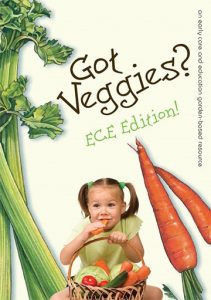 This ECE edition builds on the lessons and activities in the original Got Veggies? by adopting them to meet best practices for the early care and education setting. Each of the four themes and two á la carte activities in Got Veggies? ECE Edition! are aligned to the Wisconsin Model Early Learning Standards and offer concepts and tools developmentally appropriate for children aged five and under. View Resource »
This ECE edition builds on the lessons and activities in the original Got Veggies? by adopting them to meet best practices for the early care and education setting. Each of the four themes and two á la carte activities in Got Veggies? ECE Edition! are aligned to the Wisconsin Model Early Learning Standards and offer concepts and tools developmentally appropriate for children aged five and under. View Resource »
School Gardens: Changing Lives & Communities
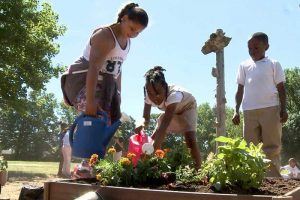 A successful school garden doesn’t just require teamwork, it builds students’ teamwork skills. From academic rewards to healthier lifestyles, these helpful tidbits about the benefits of garden-based education can help with grant writing, promoting the idea of a garden within your community, or even spark ideas for lessons. View Resource »
A successful school garden doesn’t just require teamwork, it builds students’ teamwork skills. From academic rewards to healthier lifestyles, these helpful tidbits about the benefits of garden-based education can help with grant writing, promoting the idea of a garden within your community, or even spark ideas for lessons. View Resource »
Homegrown: School Gardens in Wisconsin
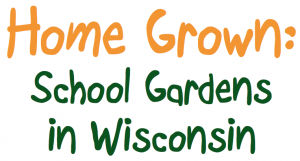 From the Department of Public Instruction. Children are more likely to absorb and integrate food knowledge if they have real-life contact with agriculture. School gardens offer a wonderful medium for students to get their hands dirty and learn about food, agriculture, and nutrition. This document profiles schools and walks through best practices to create a productive and lasting garden-based education program. View Resource »
From the Department of Public Instruction. Children are more likely to absorb and integrate food knowledge if they have real-life contact with agriculture. School gardens offer a wonderful medium for students to get their hands dirty and learn about food, agriculture, and nutrition. This document profiles schools and walks through best practices to create a productive and lasting garden-based education program. View Resource »
